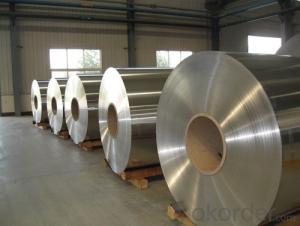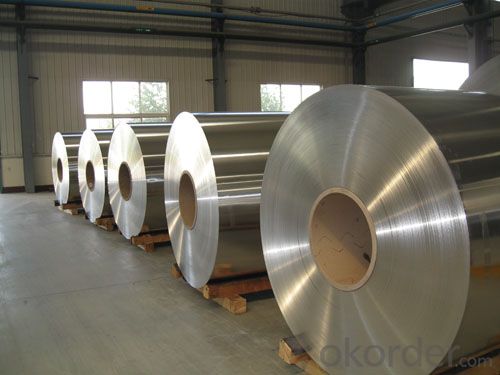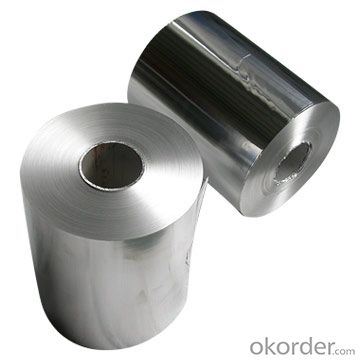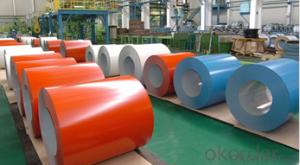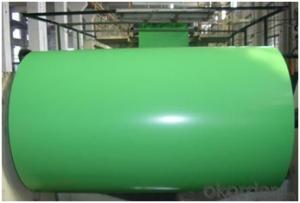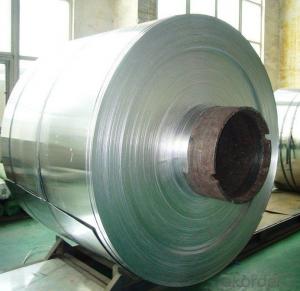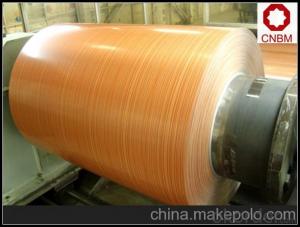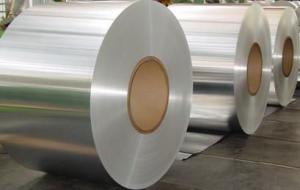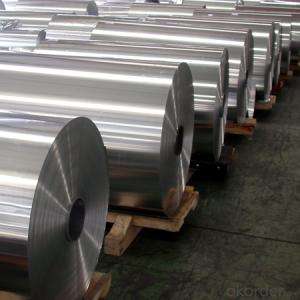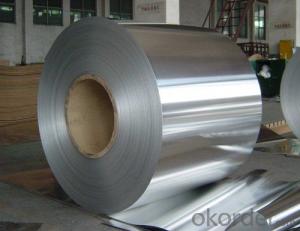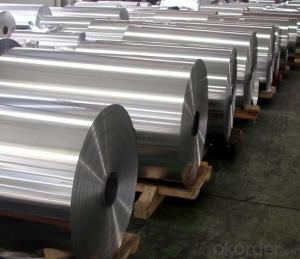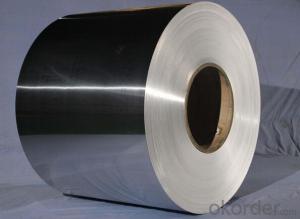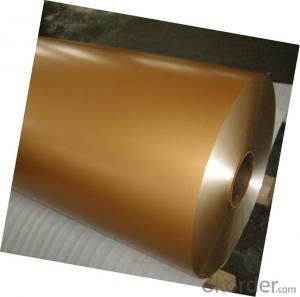Cold Rolling 6061 Alloy H22 Aluminum Rolled Sheet Aluminum Coil
- Loading Port:
- Shanghai
- Payment Terms:
- TT OR LC
- Min Order Qty:
- 5 m.t.
- Supply Capability:
- 500 m.t./month
OKorder Service Pledge
OKorder Financial Service
You Might Also Like
Specification
6061 Alloy H22 Aluminum Rolled Sheet Aluminium Coil
aluminum coil specifications:
1) Alloy :1050, 1060,1100, 3003 3004 3105 3A21 5005 5052 etc
2) Temper: O/H12/H14/H1/H18/H32/H34/H36/H38//H111/H112/H116/H321/T6/T651/T3/T351 etc
3) Thickness: 0.1mm to 6mm
4) Width:20mm to 3300mm
5)Coil weight: 100kgs to 6 tons depends on actual requirement
6)Core material: Aluminum or paper
7)Coil Inner diameter: 75mm, 150mm, 200mm, 300mm, 405mm, 505mm or as required
8) Protective film can be added
item | 3003 Aluminum coil | |
Standard | GB/T3190-2008,GB/T3880-2006,ASTM B209,JIS H4000-2006,etc | |
Material | 1060,1050,1100 3003,3103,3004,3005,3105 5052, 5454,5754 | |
Size | Thickness | 0.5mm-3.5mm |
Width | 800-1500mm | |
Weight/Roll | About 1.5MT/3MT | |
Quality control | Mill Test Certificate is supplied with shipment, Third Part Inspection is acceptable. | |
Surface | Bright, polished, hair line, brush, checkered, embossed, etc | |
Trade terms | Price term | ,FOB, CNF, CIF, etc |
Payment Term | TT,L/C | |
MOQ | 2MT | |
20 GP Capacity | About 20-25MT | |
Delivery time | 1.The products will delivery immediately after receiving the payment. 2.According to the order quantity, prompt delivery. | |
Export to | Ireland,Singapore,Indonesia,Ukraine,Spain,Canada,USA,Brazil,Thailand,Korea,Iran,India,Egypt,Kuwait, Oman,Viet Nam, South Africa, Dubai, Russia, etc | |
Package | Stick blue film→plastic film→waterproof paper→1~2 tons on a export standard pallet(corner protection) | |
Application | 1)Further making utensil.2)Solar reflective film3)The appearance of the building4)Interior decorating:ceilings,walls,etc.5)Furniture cabinets6)Elevator decoraction7)Signs,nameplate,bags making.8)Decoration inside and outside the car9)Household appliances:refrigerators,microwave ovens,audio equipment,etc.10)The consumer electronics:mobile phones,digital cameras,MP3,etc. | |
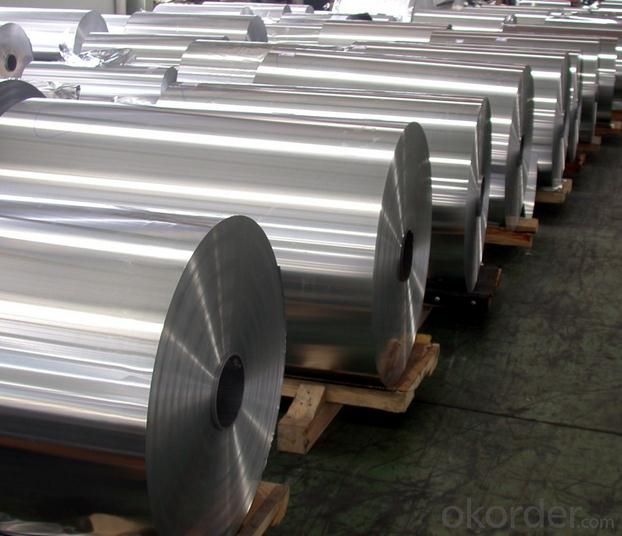
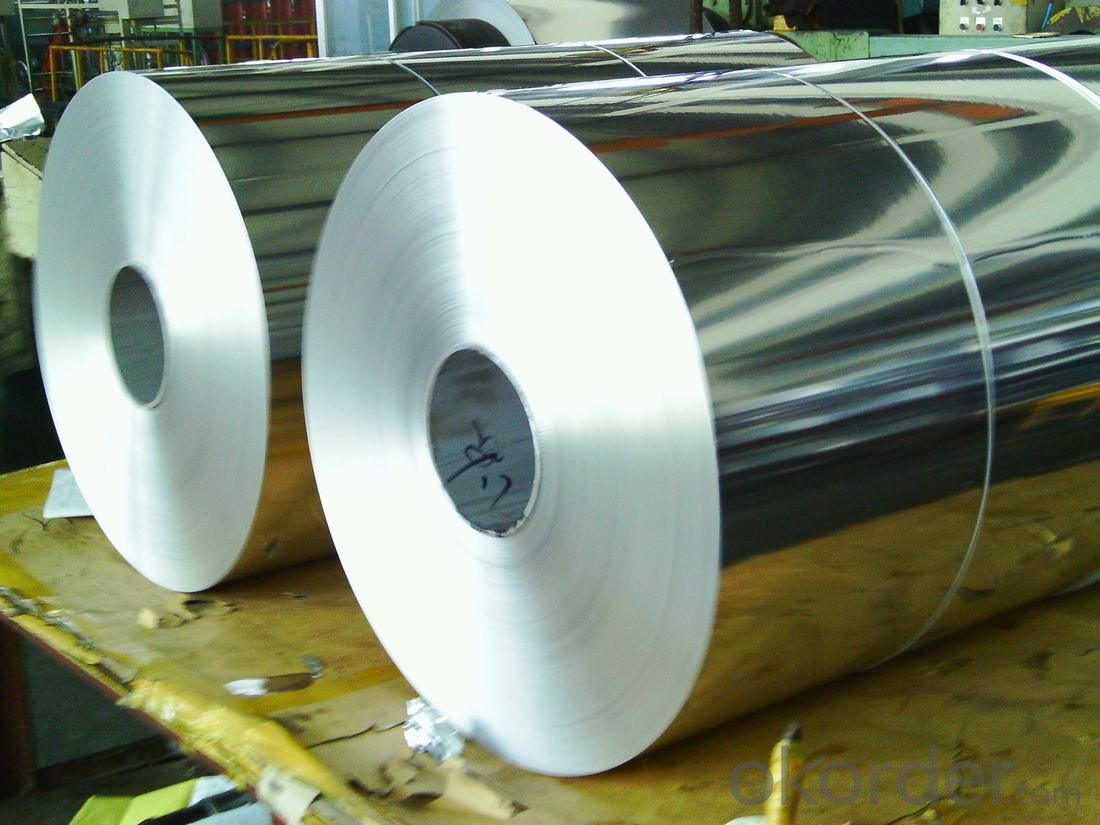
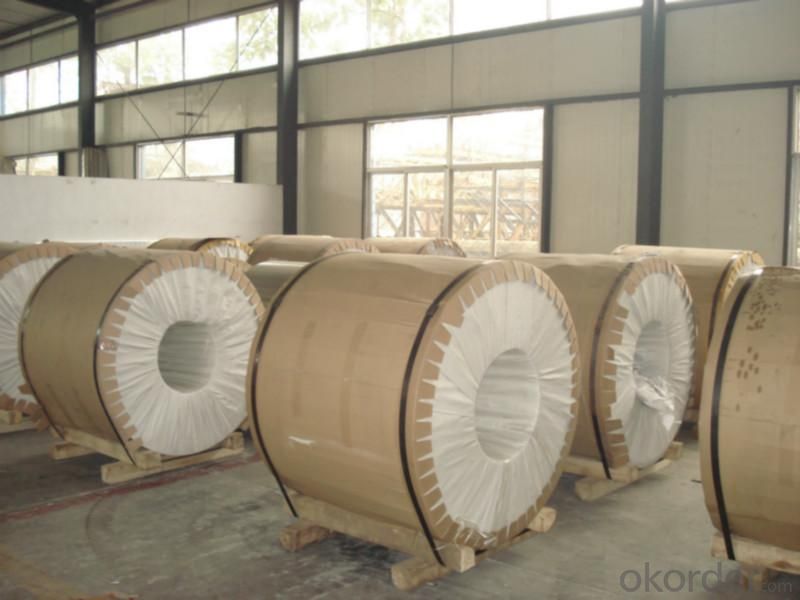
- Q: Can aluminum coils be used in the production of heat exchanger fins?
- Yes, aluminum coils can be used in the production of heat exchanger fins. Aluminum is a popular choice for heat exchanger fins due to its high thermal conductivity, lightweight nature, and corrosion resistance. These properties make it an ideal material for transferring heat efficiently while also ensuring durability and longevity. Aluminum coils can be easily formed into intricate fin shapes, maximizing the surface area for heat exchange. Additionally, aluminum is readily available and cost-effective, making it a preferred choice for heat exchanger fin production in various industries such as HVAC, automotive, and refrigeration.
- Q: What are the typical applications of aluminum coils in the automotive industry?
- Aluminum coils are widely used in the automotive industry for various applications due to their advantageous properties. One typical application is in the manufacturing of automotive heat exchangers, such as radiators and condensers. The high thermal conductivity of aluminum allows for efficient heat transfer, enhancing the cooling efficiency of the vehicle's engine and air conditioning system. Another common use of aluminum coils in the automotive industry is for making lightweight body panels and structural components. Aluminum is known for its low density, which helps reduce the overall weight of the vehicle. This, in turn, improves fuel efficiency and reduces emissions. Additionally, aluminum's high strength-to-weight ratio makes it ideal for impact-absorbing structures, enhancing the safety of the vehicle. Aluminum coils are also utilized in the production of electrical wiring systems and connectors in automobiles. Aluminum's excellent electrical conductivity enables the efficient transmission of electrical signals throughout the vehicle. Furthermore, its corrosion resistance properties make it suitable for use in various weather conditions. Moreover, aluminum coils find application in the production of suspension systems, such as control arms and knuckles. The stiffness and durability of aluminum help enhance the vehicle's handling and responsiveness, resulting in improved driving dynamics. In summary, the typical applications of aluminum coils in the automotive industry include heat exchangers, lightweight body panels, electrical wiring systems, and suspension components. These applications capitalize on aluminum's advantageous properties, such as high thermal conductivity, low density, excellent electrical conductivity, and corrosion resistance.
- Q: Are aluminum coils suitable for coil winding applications?
- Coil winding applications can utilize aluminum coils, as they possess numerous advantageous properties. Firstly, aluminum is lightweight, facilitating easier handling and transportation. Industries like automotive and aerospace, which prioritize weight reduction, find this particularly beneficial. Moreover, aluminum exhibits excellent conductivity, ensuring efficient electrical current flow within the coil. This is especially advantageous for applications requiring high performance and low resistance, such as transformers and electric motors. Additionally, aluminum's high resistance to corrosion renders it suitable for outdoor and harsh environments. Unlike metals like steel, it does not rust and can endure exposure to moisture and chemicals. Furthermore, aluminum coils offer cost-effectiveness. Compared to metals like copper, commonly used in coil winding, aluminum is generally more affordable. Thus, it presents a cost-efficient option for various industries. Nevertheless, it is important to acknowledge that aluminum has lower electrical conductivity than copper. Therefore, in applications where high conductivity is paramount, such as power transmission, copper coils may be more suitable. Nonetheless, aluminum coils provide numerous benefits and find widespread use in various coil winding applications.
- Q: Can aluminum coils be used in the manufacturing of beverage cans?
- Indeed, beverage cans can be manufactured using aluminum coils. The utilization of aluminum in beverage can production is widespread owing to its multitude of benefits. Typically, aluminum coils are rolled into slender sheets, subsequently sliced, molded, and coated to achieve the final can structure. These coils offer a lightweight, sturdy, and resistant-to-corrosion material that is suitable for the storage and preservation of beverages. Moreover, aluminum is highly recyclable, rendering it an environmentally conscious option for the production of beverage cans.
- Q: Can aluminum coils be used in the production of aluminum composite windows?
- Yes, aluminum coils can be used in the production of aluminum composite windows. Aluminum coils are often used as a raw material for manufacturing aluminum composite windows due to their versatility, durability, and cost-effectiveness. The coils can be shaped and formed into various components of the windows, such as frames, sashes, and mullions, providing strength and stability to the final product. Furthermore, aluminum coils can be coated or painted to enhance the appearance and protection of the windows, making them suitable for both residential and commercial applications.
- Q: How do aluminum coils contribute to sustainable manufacturing?
- Aluminum coils contribute to sustainable manufacturing by offering numerous environmental benefits. Firstly, aluminum is a highly recyclable material, meaning that the coils can be reused repeatedly without any degradation in quality. This reduces the need for virgin aluminum extraction, saving energy and resources. Additionally, the lightweight nature of aluminum coils reduces transportation costs and fuel consumption during shipping. Furthermore, aluminum is corrosion-resistant, leading to longer product lifespans and reducing the need for frequent replacements. Overall, the use of aluminum coils promotes sustainability through efficient resource utilization, reduced emissions, and increased product longevity.
- Q: What are the potential health hazards associated with the use of aluminum coils?
- <p>There are concerns about the health risks associated with using aluminum coils, particularly in cooking. Aluminum can leach into food when heated, and excessive intake may lead to cognitive impairment and neurological issues. However, the risk is generally considered low with normal usage. It's important to follow proper cooking practices and use utensils that are not reactive with aluminum to minimize exposure. For those with concerns, alternatives like stainless steel or cast iron can be used to reduce potential health risks.</p>
- Q: wikipedia says welding aluminum by means of stick welding is possible but i have always been told TIG is the only way to weld aluminum. what do i need in order to stick weld aluminum? BTW i have a Lincoln Electric AC 225 Stick Welder
- You can buy aluminum welding rods for stick welding aluminum but it is hard to weld on thicknesses less than 3/16 of an inch with stick without practice. TIG is your best bet on lighter material. You also have to match the rods to the same alloy of aluminum base material you are welding.
- Q: This question asks for a brief explanation of the process involved in the manufacturing of aluminum coils.
- <p>Aluminum coil is made through a series of processes starting with the melting of aluminum ingots or scrap. The molten aluminum is then poured into a casting machine where it's cooled and solidified into large slabs. These slabs are then heated and passed through a series of rolling mills to reduce their thickness and achieve the desired coil gauge. The rolling process is often hot or cold, depending on the final application of the coil. After rolling, the aluminum is coiled into rolls and may undergo additional treatments like annealing to improve its properties. Finally, the aluminum coil is cleaned, inspected, and shipped for use in various industries such as construction, automotive, and packaging.</p>
- Q: Is it possible to utilize recycled aluminum coils for a project instead of purchasing new ones?
- <p>Yes, you can use recycled aluminum coils in your next project instead of buying new ones. Recycled aluminum is environmentally friendly and often more cost-effective. It maintains the same properties as new aluminum, making it suitable for various applications. Ensure the recycled coils meet the quality standards required for your project. Check for any impurities or damage that might affect performance. Using recycled materials not only reduces waste but also conserves resources.</p>
Send your message to us
Cold Rolling 6061 Alloy H22 Aluminum Rolled Sheet Aluminum Coil
- Loading Port:
- Shanghai
- Payment Terms:
- TT OR LC
- Min Order Qty:
- 5 m.t.
- Supply Capability:
- 500 m.t./month
OKorder Service Pledge
OKorder Financial Service
Similar products
Hot products
Hot Searches
Related keywords
